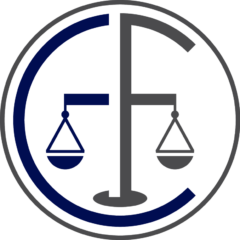Federal Criminal Law is chiefly a sentencing practice. While trials do take place – for instance, later this year we will have at least one, possibly two, federal trials in which former president Donald Trump is the defendant – for the most part, federal cases end in a guilty plea of some sort. Of the thousands investigated and prosecuted by the federal government in the January 6 storming of the Capitol Building, only a few more than a hundred went to trial, and only two of those hundred were found “not guilty.”
Given those facts about convictions in the federal system, and the very punitive nature of federal sentencing, federal sentencing guidelines play a large part of any criminal lawyer’s federal practice. In light of cases, including Booker, Rita, Gall, and Kimbrough, the Sentencing Guidelines, originally created under a 1984 sentencing act, are no longer mandatory. They are advisory. Nonetheless, the sentencing court must take into account the Guidelines in formulating a sentence.
Therefore, even for Judges who may vary from the Sentencing Guidelines, the guideline in a particular case sets the starting point for the determining how the client will be sentenced. The Guidelines are important, reflecting the collective wisdom of legislators, judges, experts, prosecutors, and defense lawyers who sit on or advise the United States Sentencing Commission that is based in Washington, DC.
What are the Federal Sentencing Guidelines
Periodically – usually annually – the Commission issues updates to the Guidelines, produced a book that can be purchased or downloaded from the Commission’s website. The Guidelines begin by determining a Base Offense Level and then adjust that Offense Level by applying increases (or decreases) based on specific offense characteristics present in the particular case, the characteristics of the victim, and the offender’s role in the offense. Lastly, a departure can be authorized by the Guidelines in exceptional circumstances.
After first calculating the guidelines, the District Judge then decides whether any departures are variances are warranted.
November 2023 Post-COVID Changes
The Sentencing Commission did not have a quorum – the required 4 members – from 2019 to 2022 when the Senate finally approved seven new members of the commission. The Commission’s lack of a quorum meant that new Guidelines could not be issued, so the 2018 Guidelines were the effective guidelines until 2023.
The new Guidelines, effective November 1, 2023, include significant changes that mostly benefit defendants. The first of those guidelines is known as Amendment 821. Amendment 821 restricts the use of Status Points. Status Points are points added to the Offense Level if the person committed an offense while on probation, parole or other criminal justice supervision while committing any part of the instant offense. Before November 2021, Status Points applied even in cases where a person was on probation for a minor – e.g., traffic – offense and committed any part of the instant offense while on probation.
After November 2021, the Sentencing Guidelines restrict the use of status points for more serious offenders.
In addition, Amendment 821 added a further reduction of 2 points in cases with Zero Criminal History Category points.
In addition, the new United States Sentencing Guidelines contain Section 3582(c)(1)(A) which authorizes a court to reduce a defendant’s term of imprisonment if “extraordinary and compelling reasons” warrant a reduction and “such a reduction is consistent with applicable policy statements issued by the Sentencing Commission.”
Moreover, the Commission made three changes to §5C1.2 which corresponds to the Safety Valve under 18 U.S.C. Sec. 3553(f) amended by the First Step Act. The First Step Act expanded the safety valve provision at section 3553(f) by extending its applicability to defendants convicted of maritime offenses (46 U.S.C. §§ 70503 and 70506) and broadening
the criminal history eligibility criteria to include defendants who do not have: (1) “more than 4 criminal history points, excluding any criminal history points resulting from a 1- point offense, as determined under the sentencing guidelines”; (2) a “prior 3-point offense, as determined under the sentencing guidelines”; and (3) a “prior 2-point violent offense, as determined under the sentencing guidelines.”
Federal Criminal Lawyer Who Understands the Guidelines
It’s important for your federal criminal lawyer to be up-to-date on changes in the United States Sentencing Guidelines that could impact – for good or bad – your loved one’s sentence.





